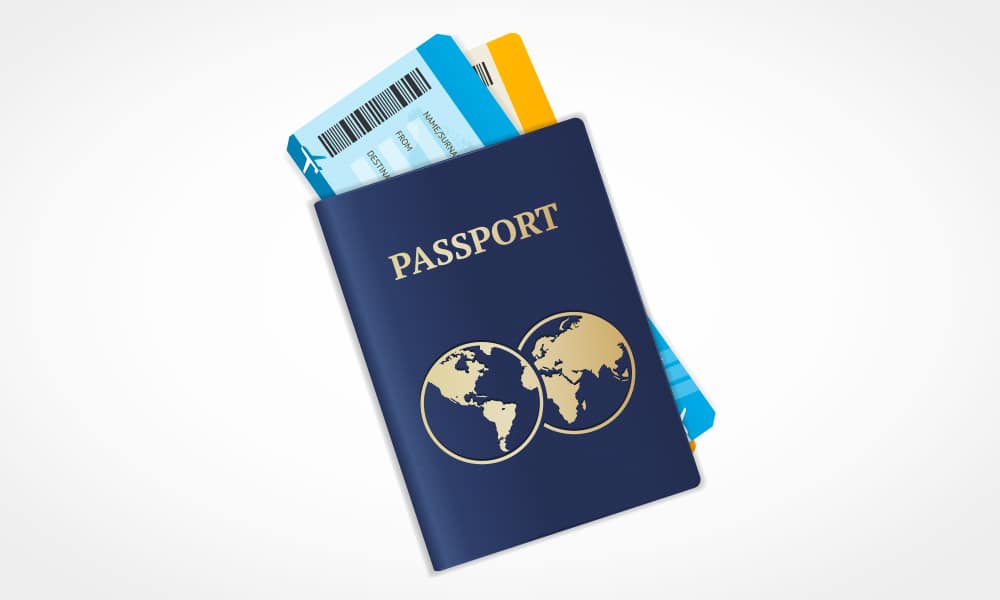


Does any of the traveller have any pre-existing medical condition like BP, diabetes etc? See what it means ›
Now covers COVID-19
Cancelled Flights? Here's What Travel Insurance Really Covers
Airport closures don't always come with warnings. It could be heavy fog in Delhi, a worker strike in Frankfurt, a cyclone in Tokyo or even a political stir that grounds everything. When this happens, your itinerary turns chaotic, and your wallet often takes the hit. That's where overseas travel insurance might help. But the keyword here is “might”. Whether it cushions your loss depends not only on what happened but also on what your policy quietly allows. Let's break this down.
Travel Insurance Plans on PolicyBazaar#1
- Individuals
- Sr. Citizens
- Students
First, What Travel Insurance Usually Promises

Most people think travel insurance is just for medical emergencies abroad. But, in reality, it is more than that. A standard travel insurance plan, even the most basic one, typically covers the following:
- Medical emergencies overseas: If you fall ill or need hospital care while travelling, your insurer may take care of the bills.
- Loss or delay of checked-in baggage: When your luggage doesn't arrive but your stress level does, policies often reimburse essentials like clothes and toiletries—or pay for lost items if the bag never shows up.
- Personal accident and hospitalisation: Accidents happen. If they lead to injury, disability, or worse, your international travel insurance financially supports you or your family.
- Trip cancellation or interruption due to valid reasons: If you are forced to cancel or cut your trip short due to a medical emergency, family death, or other listed reasons, non-refundable bookings may be reimbursed.
- Lost or stolen passport: Losing your passport in a foreign city is a nightmare; most policies will cover the cost of getting a new one and any related paperwork.
- Missed connections and delays under certain conditions: Some plans compensate if a delay causes you to miss your connecting flight—though only if the delay fits specific, pre-approved scenarios.
What Happens When the Airport Shuts Down?
Let us say your flight is cancelled—not by the airline, but because the entire airport is closed. Whether or not insurance helps depends on why the closure happened and whether your policy lists that reason under covered events.
It is not always straightforward—but here's where it can work in your favour.
When Your Insurance May Offer Relief
Some situations are recognised by insurers as “valid reasons” for cancellation or delay. If your flight gets cancelled due to one of these, there's a decent chance you are covered.
- Severe weather conditions: Torrential rains, heavy snowfall, storms—when Mother Nature shuts down the tarmac, most comprehensive plans consider this a justifiable disruption.
- Strikes or airport staff unrest: If airport workers, ground staff, or air traffic controllers go on strike and the airport is shut down, many insurers view it as a force majeure event—provided it's listed in your policy.
- Natural disasters like earthquakes or volcanic ash clouds: A natural calamity that shuts an airport can trigger cancellation coverage, as long as your insurer includes such disasters in their terms.
- Civil unrest or security lockdowns: Political disturbances, bomb threats, or riot-related closures may be covered, especially if they lead to government-mandated airport shutdowns.
What matters most: You'll need written proof from the airline or airport confirming the reason and timeline of the closure. And yes—most policies only kick in after a delay of at least 6 to 12 hours.
When Your Insurance May Not Cover a Rupee
There are situations where you will have to absorb the loss yourself—even if the flight didn't take off. Like:
- Disruptions already in the news before you booked: If the airport closure or storm warning was already public when you booked the trip (or the policy), it's considered a “known event,” and most insurers exclude it.
- Airline operational issues: Crew shortage, aircraft maintenance, overbooking—these are airline problems, not insurers'.
- Missing the flight due to personal reasons: Delays caused by traffic, misjudged timing, or a long queue at immigration? Unfortunately, those are on you.
- Airport closure announced in advance, but you still travelled: If a closure or weather warning is issued days in advance and you choose to travel anyway, insurers may reject claims because the risk was avoidable.
- Voluntary trip cancellations: Cancelling your flight because you are anxious about protests or health scares, without an actual disruption in services, is usually not considered claim-worthy.
Fine Print That Can Make or Break Your Claim
Even if your situation seems covered, most policies have certain conditions shaping the final outcome when you make a claim. For instance:
- Minimum delay threshold: Many insurers only offer compensation if your flight is delayed by more than a certain number of hours—usually six or more.
- Official documentation is essential: A WhatsApp message from the airline won't do. You will need formal confirmation outlining the cause and duration of the disruption.
- Reimbursement limits apply: Policies often cap payouts. You might get ₹50 thousand or ₹1 lakh or just the flight cost. Read the policy wording carefully.
- Only non-refundable expenses are covered: If you are already getting a refund from the airline or hotel, the insurer won't double that amount.
- Coverage scope varies widely: Some policies cover hotel bookings and prepaid tours; others don't. If you have booked a safari or a cruise, ensure it is listed.
Add-ons That Might Be Worth Your Rupees
Basic travel plans are limited. But with the right add-ons, like the ones given below, your cover can become more practical—especially in uncertain seasons.
- Trip Cancellation Cover: This extends protection if you cancel the trip due to a covered event. Helpful for expensive bookings and international itineraries.
- Trip Interruption Cover: If your trip starts and is cut short due to a valid emergency, this add-on can reimburse unused portions and return costs.
- Missed Connection Cover: Missed a connecting flight due to a delay in the first leg? This covers alternate transport and possible accommodation.
- Natural Calamity Add-on: For those flying during monsoons or trekking through risk-prone regions, this offers added financial cushioning.
A Few Real-world Scenarios
| Situation | Covered? | Why It Matters |
| Flight cancelled due to cyclone | Yes | Natural disasters are typically recognised by insurers |
| You missed your flight due to traffic | No | This falls under personal responsibility, not insurable risk |
| Airport shut due to strike | Yes | Labour strikes are often listed under covered disruptions |
| You cancelled fearing protests | No | Fear alone doesn't qualify as a reason unless the event materialises |
| You booked after an official closure warning | No | Known risks are generally excluded by default |
What to Do—Before and After a Cancellation
Before you travel:
- Read the entire policy document, not just the summary. The exclusions often hide in footnotes.
- Know exactly what is considered a “covered reason.” Ambiguity rarely works in the traveller's favour.
- Keep screenshots and PDFs of all bookings and receipts—flights, hotels, activities.
- Choose a policy with higher coverage limits if your bookings are premium or non-refundable.
If plans fall apart:
- Get formal proof from the airline or airport—email, statement, or official notice.
- Keep track of all your expenses, including flight costs, hotel bills, food, and taxi fares.
- It's crucial to promptly report your insurance claim to your insurer's helpline.
- To ensure a timely and successful claim processing, submit your claim along with all necessary supporting documents.
To Conclude
Travel insurance doesn't guarantee a perfect trip—but it offers a safety net when things fall apart. When airports close and flights vanish off screens, your international travel insurance policy can save you or shrug its shoulders.
So take ten minutes before booking. Read the clauses. Ask questions. Choose a plan that is built for real-world travel—not just brochure promises. When you are stranded in a foreign terminal, it is not just the price; it is what the premium covers.
STANDARD TERMS AND CONDITIONS APPLY. For more details on risk factors, terms, and conditions, please read the sales brochure carefully before concluding a sale.
Policybazaar Insurance Brokers Private Limited, Registered Office - Plot No.119, Sector - 44, Gurgaon, Haryana - 122001 | CIN: U74999HR2014PTC053454 | Policybazaar is registered as a Composite Broker | Registration No. 742, Valid till 09/06/2027 | License category - Composite Broker | Contact Us | Legal and Admin Policies
*Price shown is for a 180 day trip to Thailand with 50 thousand dollar coverage for an adult of age 25 years





































